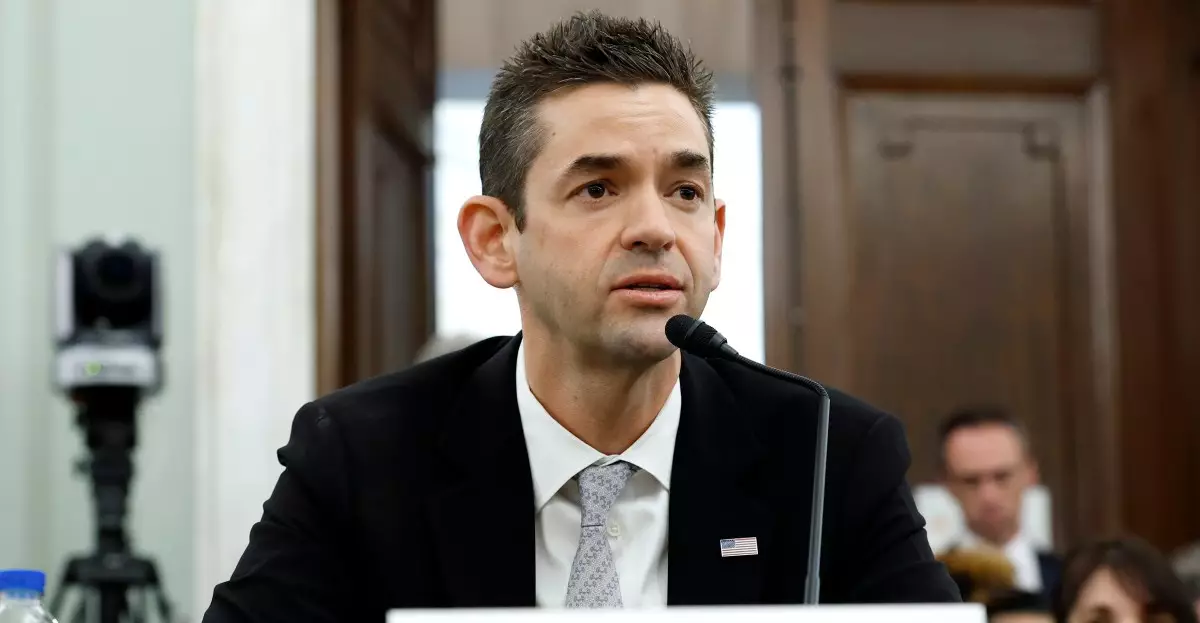The recent withdrawal of Jared Isaacman’s nomination as NASA Administrator has sent shockwaves through the space exploration community. Isaacman, a billionaire entrepreneur and longtime ally of Elon Musk, had his nomination rescinded seemingly because of his past political contributions to Democratic candidates. This episode raises significant questions about political bias and the implications it can have on crucial leadership positions in scientific agencies.
Isaacman is not just an ordinary candidate; he is the founder and CEO of Shift4 Payments and a recognized figure in the burgeoning commercial space industry. His achievements, including flying on SpaceX missions and conducting the first commercial spacewalk, showcase his dedication to advancing space travel. However, the urgency for representation that aligns perfectly with the political sentiments of the current administration appears to have overshadowed his credentials. The message seems clear: political loyalty can outweigh professional merit, especially in an environment where technology and exploration intersect with partisan lines.
The Implications of a Shrinking NASA Budget
Alongside Isaacman’s controversial withdrawal, the Trump Administration’s proposed budget cuts for NASA have sparked outrage among scientists and space advocates. Slashing the agency’s budget from $24.8 billion to $18.8 billion signifies not just a reduction in funds but potentially a devastating blow to scientific discoveries. The dramatic 47% reduction in funding for science programs reflects a troubling prioritization that threatens to stall vital explorations and innovations. Experts warn that this budget represents an “extinction-level event” for science-related endeavors at NASA, a sentiment echoed by prominent organizations like The Planetary Society.
When juxtaposed against the backdrop of Isaacman’s nomination scenario, one cannot help but ponder the administration’s true intentions. The immediate implication is a signal that scientific advancement is less valued than political conformity. The idea that NASA may be steering toward a “going-out-of-business” approach raises alarms about the future of American leadership in space exploration. Public funding for science fosters not just technological growth but also international cooperation and inspires future generations of scientists and explorers.
A New Era of Transparency and Accountability Needed
With Isaacman’s fate hanging in the balance, the need for a more transparent and accountable nomination process within NASA is glaring. The agency should be led by individuals who are equipped to spearhead innovation and exploration, irrespective of their political affiliations. An administration dedicated to an “America First” agenda should value the intrinsic merits of candidates, especially in sectors crucial to national prestige and scientific inquiry.
Moving forward, it is imperative that a dialogue begins—one that openly examines how political contributions can influence high-stakes nominations that should be based solely on expertise. As future leaders emerge, ensuring that they uphold the ethos of NASA and support scientific progression over partisan interests will be essential for safeguarding the integrity of the organization. This current predicament highlights a crucial paradox: in the critical realms of science and exploration, success should transcend political divides and focus instead on shared human aspirations.


Leave a Reply